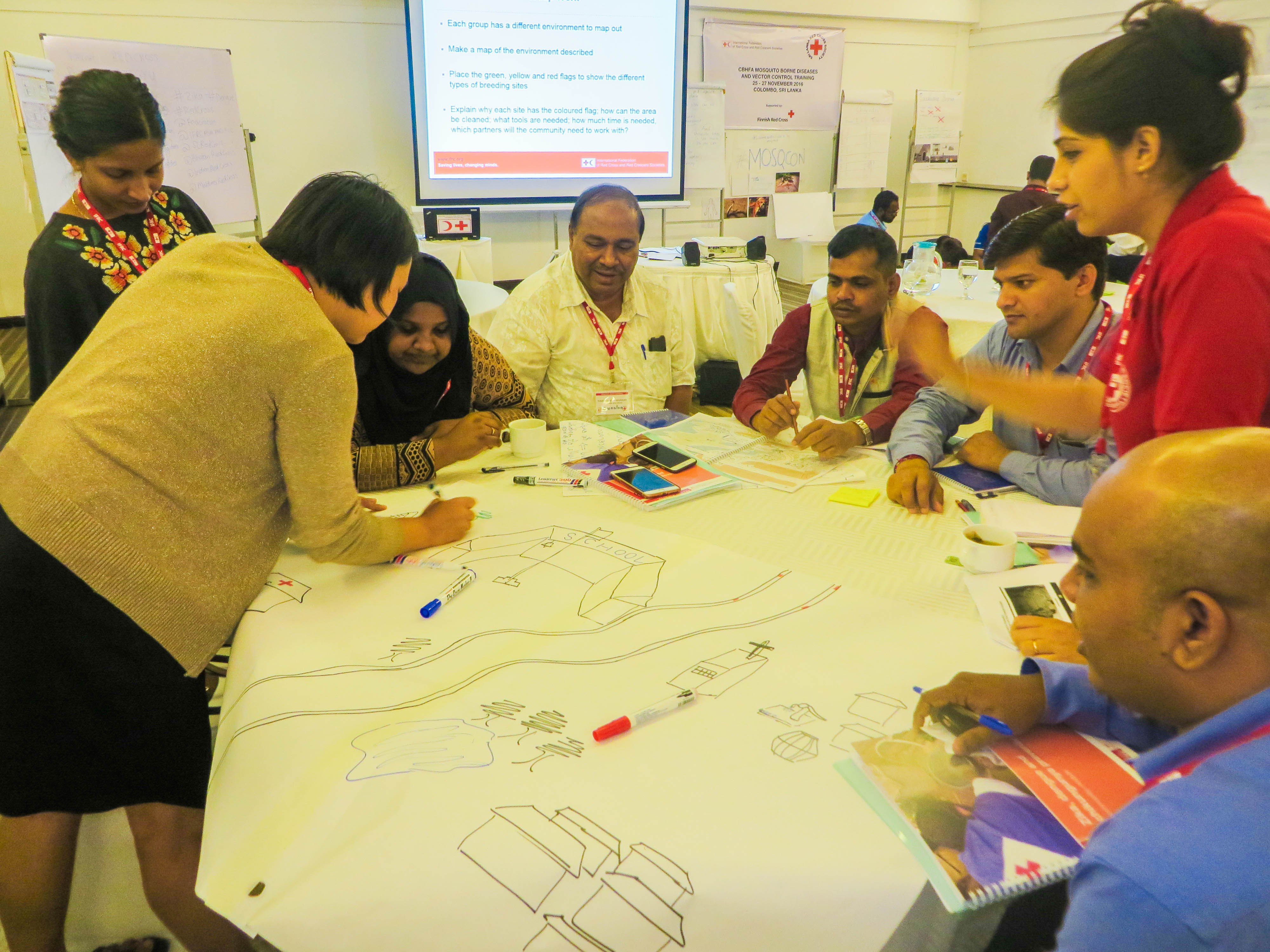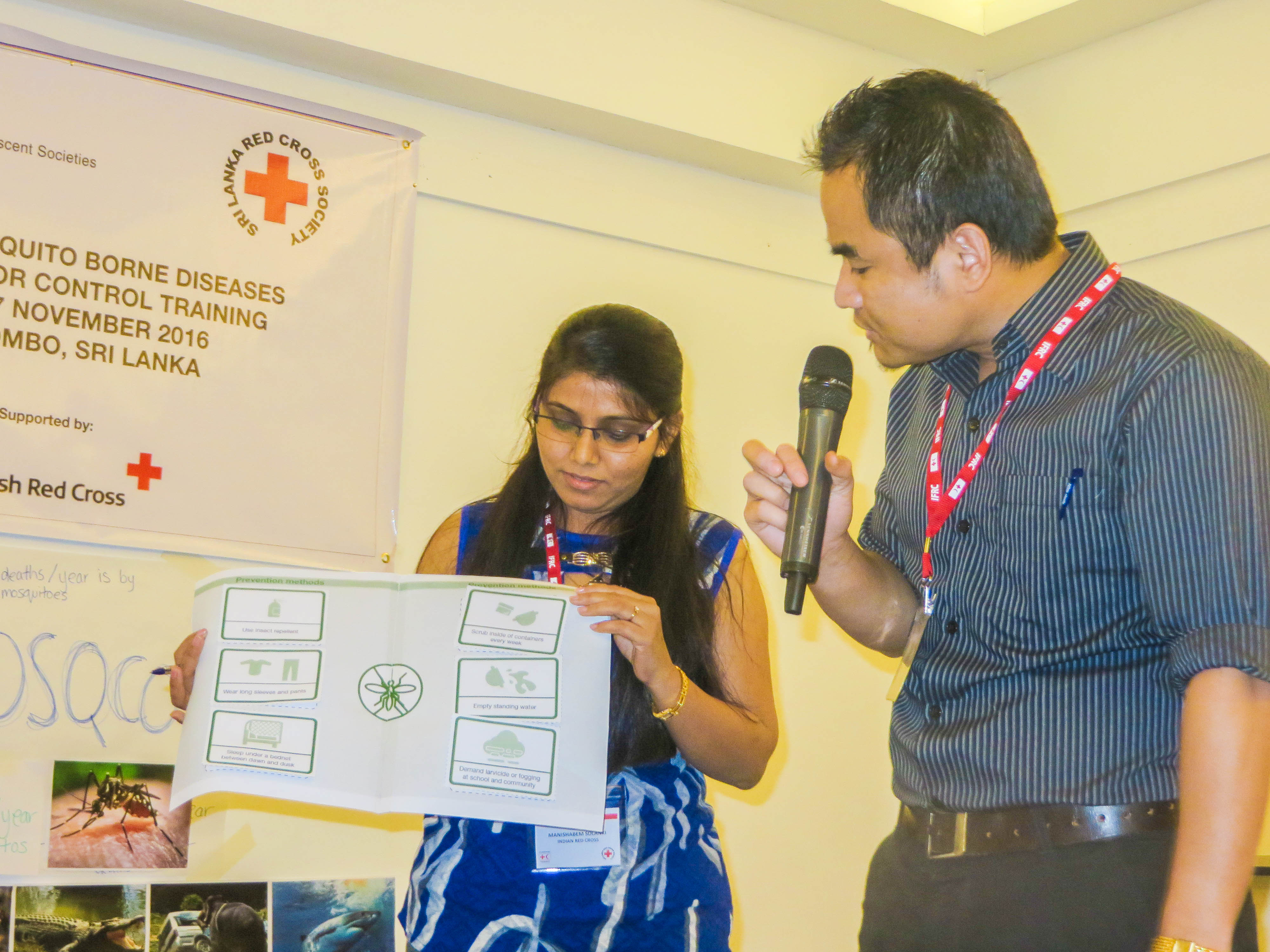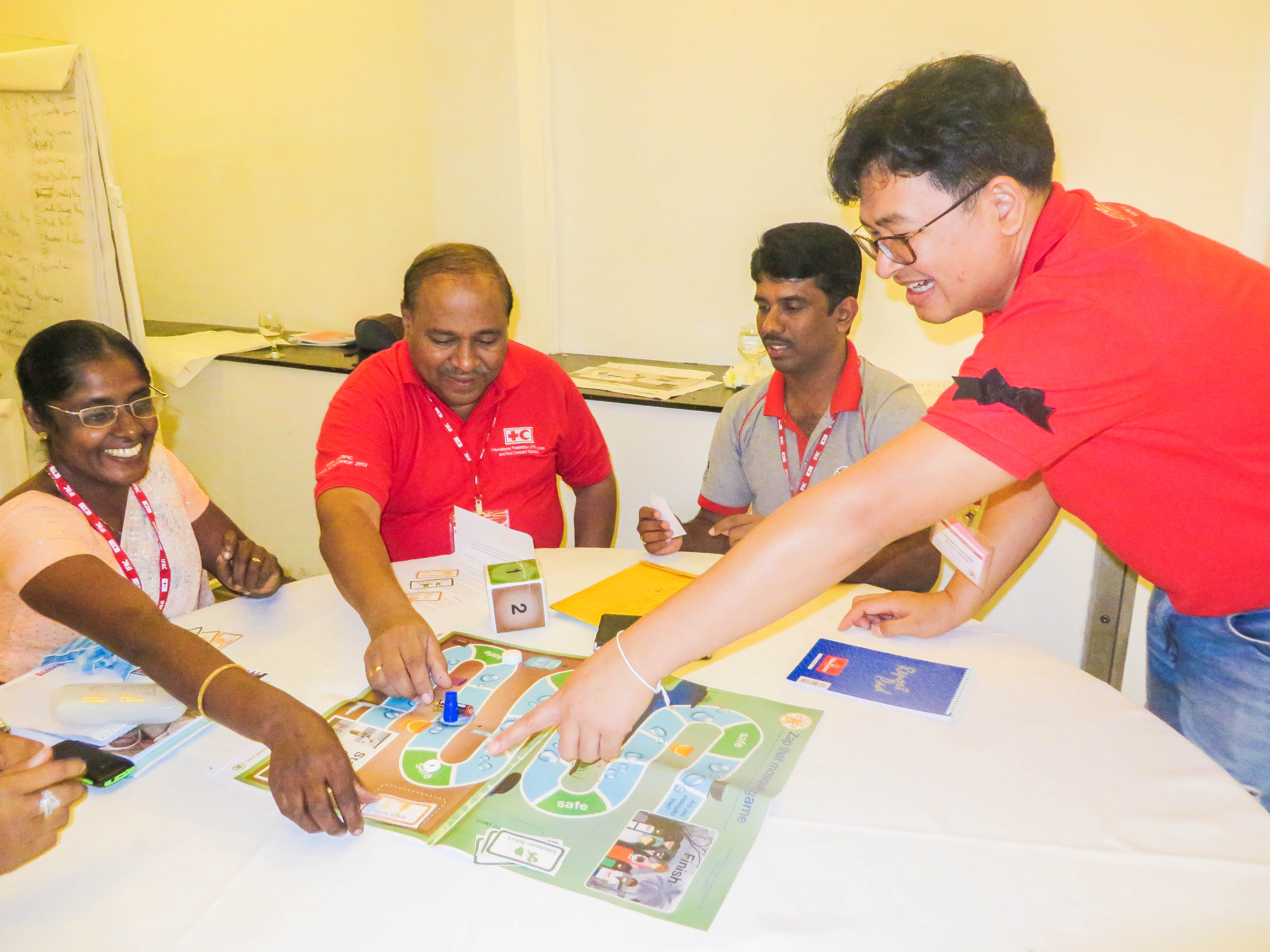Joining forces to share knowledge in order to fight vector borne disease in South Asia
30/11/2016 – Colombo, Sri Lanka: Dengue, Chikungunya and in the recent past Zika has now become a menace to communities across the world. In Sri Lanka alone dengue has affected 2283 cases island-wide for this year alone. Accordingly, a collective programme by the Government, Aid Workers and other partners in the field have been working around the clock in order to raise awareness among vulnerable communities and to ensure that the information needed to them are provided accordingly.
In this backdrop the Sri Lanka Red Cross Society (SLRCS) in collaboration with the International Federation of Red Cross & Red Crescent Societies (IFRC) with funding support from Finnish Red Cross organized a regional workshop for Red Cross Red Crescent health workers in South Asia titled “CBHFA* Mosquito Borne Diseases Training” to share knowledge and to find solutions to issues they face when working in their communities.
Meanwhile an educational tool kits designed to help communities prevent transmission of diseases spread by infected Aedes mosquitoes was also tested by participants during this workshop. The tool kits titled “Zika Dengue Chikungunya toolkit” (ZDF Toolkit) can be found below for reference:
A participant from Maldives Ahmed Abdulla, Branch Coordinator, Maldivian Red Crescent said “When I heard about this training I thought what more can we learn about mosquitoes? But now I have learnt so much more, and know that there is lots we can do, and how we can do it”
“Mosquito borne disease kills more than 725,000 people (nearly ¾ million) per year which is largely preventable, we must do more to stop this silent disaster urgently” says Kym Blechynden the Regional Emergency Health Coordinator for Asia Pacific of the IFRC.
“The IFRC is partnering with National Societies like the Sri Lanka Red Cross, across Asia Pacific to roll out the new ZDC Toolkit to encourage communities to take action to eliminate mosquito breeding sites and prevent mosquito bites, taking a whole community approach”
Through the 2016 declared outbreak of Zika, the bite of an infected Aedes Aegypti and Aedes Albopictus mosquito grew even more hazardous. These same Aedes mosquitoes that transmit Zika also transmit dengue, chikungunya and yellow fever, diseases that affect all segments of society but with particular impact on the poorest and most vulnerable. Diseases caused by the Aedes mosquitoes result in hundreds of thousands of deaths each year – deaths which are largely preventable by eliminating mosquito breeding sites and interrupting human-to-mosquito contact.
In the battle against diseases like Zika and dengue, knowledge is power. Climate change is shifting the distribution of mosquitoes and to new areas. Empowering communities is essential in reaching and protecting the most vulnerable individuals and households. Vector control programmes, community empowerment and awareness campaigns are proven strategies to reduce the burden of vector-borne diseases. Red Cross and Red Crescent volunteers can play a key role in community and school outreach activities for Zika, dengue and chikungunya prevention. These community-based activities need to be sustained to ensure long-lasting disease control.
Accordingly the Zika, dengue and chikungunya prevention modules and toolkit were developed to initiate a long-term engagement with the communities at risk through awareness and health promotion materials. National Societies and organizations at community level can contribute to sustained improvement of sanitation, reduction of mosquito breeding sites and increased level of knowledge on how to protect the community from mosquito-borne diseases such as Zika, dengue and chikungunya.
During the workshop, participants took part in testing whether the took kit would provide them a frame work to working with their communities and to see whether grey areas of the kit can be iron out and solutions can be brought forward. A second workshop of the same would take place in Viet Nam in the latter part of this year.
* CBHFA – Community Based Health & First Aid



